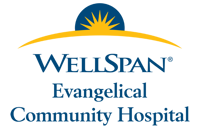Mammography FAQs
Do you have questions about mammography? Check out these Frequently Asked Questions.
The American Cancer Society recommends that women age 40 and older have a screening mammogram every year as long as they are in good health. This is because mammograms are the single most accurate method of detecting breast cancer in its early stages, when it is most curable.
If a woman has a strong family history of breast cancer or has other risk factors, her doctor may recommend beginning screening mammograms before age 40.
No. Although breast cancer affects far more women than men (approximately one in eight women vs. one in 1,000 men), men also can have the disease.
Individual symptoms do not necessarily mean that you have cancer. However, your doctor may order a mammogram or other diagnostic testing to check for breast cancer.
Tell your doctor if you feel a lump in your breast or if you experience any of the following symptoms:
- nipple discharge
- swelling
- skin irritation
- dimpling of the skin
- nipple pain
- nipple turning inward
- redness or scales on your breast
At WellSpan Center for Breast Health, we know that even the thought of having a mammogram can cause concern for some patients. That’s why we do everything we can to make the experience as quick, comfortable, and reassuring as possible.
During your mammogram, you’ll be in a private radiology room. One of our experienced, caring mammography technicians will perform your test.
The technician will ask you to lower one side of your gown to provide access to your breast. The technician will adjust your breast to the proper position on an X-ray plate attached to the mammography machine. The technician will then compress your breast between the X-ray plate and a clear plastic plate on the machine. The compression is needed to spread your breast tissue apart and hold it in place. This will provide the radiologist who reads your mammogram with a good image of your breast tissue. It also allows for use of a low dose of radiation.
Although some women find the compression to be uncomfortable, it only lasts for a few seconds. The entire procedure for a mammogram of both breasts takes about 20 minutes.
A screening mammogram is an X-ray examination of the breasts of a woman who has no symptoms of breast cancer. The purpose of a screening mammogram is to find cancer when it is still too small for a woman or her doctor to feel.
Although we recommend that you see your doctor for a referral, you also can schedule a screening mammogram yourself, without a doctor’s order.
A diagnostic mammogram is a more involved X-ray examination of the breast. This type of mammography requires a doctor’s order, and is used if a woman has one or more symptoms of breast cancer (for example, a lump or nipple discharge), when a radiologist finds an abnormality in a woman’s screening mammogram, or as a follow-up in a woman who has had breast cancer.
Unlike screening mammography, diagnostic mammography can determine the exact size and location of breast abnormalities and provide images of surrounding tissue and lymph nodes.
Yes. If you’ve had mammograms, breast ultrasounds, breast biopsies, or other breast treatments at other facilities, please bring your films or other test results with you to your appointment.
Even though WellSpan Center for Breast Health uses digital mammography, our radiologists will compare your prior films with the digital images produced at our facility.
Many insurance plans cover the cost of a mammogram. Please contact your insurance provider to ask if you have coverage for this service.
If you don’t have health insurance, please call us at 570-522-4200 to ask about WellSpan’s Community Outreach programs. We also can provide you with information regarding the HealthyWoman Program. This free, early-detection program for breast and cervical cancer is funded by the Pennsylvania Department of Health and through a grant the department receives from the Centers for Disease Control and Prevention. The program provides free breast examinations and follow-up care to women who qualify.
For more information about the HealthyWoman program, please contact the Lewisburg Office at 570-523-3600.
In addition, Medicare will cover the cost of yearly mammograms for women age 65 and older.
To prepare for your mammogram, there are some things you need to avoid and some things you should do.
What to Avoid
On the day of your mammogram, it’s important that you DO NOT use deodorant, powder, perfume, or lotion under your arms or near your breast area. Any of these products could appear on your mammogram images and affect their accuracy.
Also, we recommend that you avoid caffeine for the week prior to your mammogram. This suggestion is for your comfort, as caffeine can sometimes cause breast tenderness.
What to Wear
For your comfort, we suggest that you wear a two-piece outfit so that you will only need to remove your top. When you arrive at the hospital, we’ll provide you with a gown to wear during your test.
What to Bring
Please bring the following items with you to your mammogram appointment:
- name, address, and phone number of your doctor and any other healthcare providers that you would like to receive a copy of your report
- your doctor’s order
- If you have had mammograms, breast biopsies, or other breast treatments at any other facility, please bring a list of these facilities and their addresses along with the dates the exams were completed
- Any prior X-ray films or exam results that you may have
- Call us: 570-522-4200
- Info Request Form

